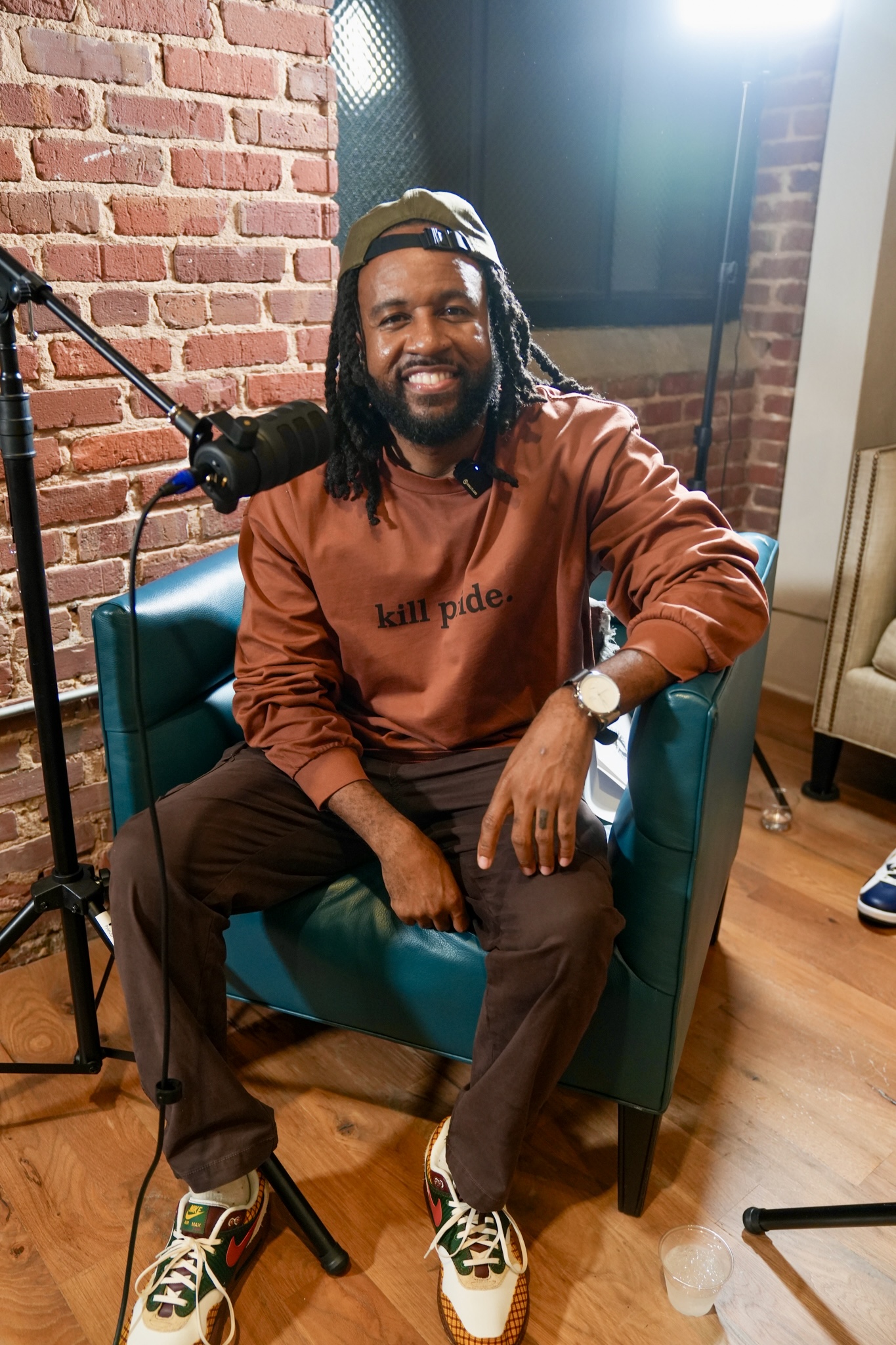Alright – so today we’ve got the honor of introducing you to Terrence Smith. We think you’ll enjoy our conversation, we’ve shared it below.
Terrence, appreciate you joining us today. It’s always helpful to hear about times when someone’s had to take a risk – how did they think through the decision, why did they take the risk, and what ended up happening. We’d love to hear about a risk you’ve taken.
In every circle I have been in, I’ve always been the strong one.
The steady presence. The responsible son. The leader. The one people leaned on—at church, at work, at home and in the community. I knew how to hold things down. What I didn’t know was how to fall apart.
So when I started getting angry during happy moments (birthdays, holidays, family milestones), I didn’t understand it. I’m usually even-tempered. I don’t get too high or too low. But something started to shift. I was snapping. Irritated. Sometimes, just hollow.
And I couldn’t name it.
So I started digging. I Googled symptoms, read psychology books, and quietly journaled when nobody was looking. Eventually, the truth met me where I wasn’t expecting it: I was grieving.
My father had passed away eight years earlier from complications with diabetes. I never really slowed down to feel it. I just kept going—because that’s what men do, right? You move forward. You stay strong. But the grief didn’t disappear. It just found new ways to show up, through anger, disconnection, and silence.
I finally realized I was angry not because of the present, but because of who was missing from it.
He should’ve been here.
That realization cracked me open. And what happened next scared me more than anything I’ve ever done.
I started talking.
Not preaching. Not leading. Just sharing quiet, personal truths with the people closest to me—mostly other Black men. I told them I wasn’t okay. That I was tired of holding it all in. That I missed my father. That I needed to figure out what was going on.
That was terrifying.
Because I’m a private person. I’ve spent most of my life minding my own business, staying composed, and showing up as the warm and jovial person in every space. Sharing my inner world felt like handing someone a map to the places I usually keep locked up. But I took the risk—and something unexpected happened.
The more I opened up, the more others did too.
We weren’t just talking about grief. We were talking about pressure. Anger. Fatherhood. Faith. Fear. We were unlearning the idea that being a man means going it alone.
That’s how kill pride club began. Not as a brand, not as an event—just a space to be ourselves for real, and just breathe. A space for men, especially Black men, to lay our pride down. To speak before silence breaks us. To stop performing and start healing.
Creating this wasn’t easy. Sharing my story still doesn’t feel natural. I’d much rather keep things to myself. But I know what pride costs. It costs joy. It costs peace. It costs relationships.
And if I didn’t kill mine, it was going to kill me. And I refuse to let that pride rob me, and other men of what we may not even realize we’re being robbed of.
So now, I invite others in, not as an expert, but as someone who’s still becoming. Still learning. Still grieving. Still trying.
Because I believe that when we risk being seen, we give others permission to do the same.
And that kind of courage? It changes everything.
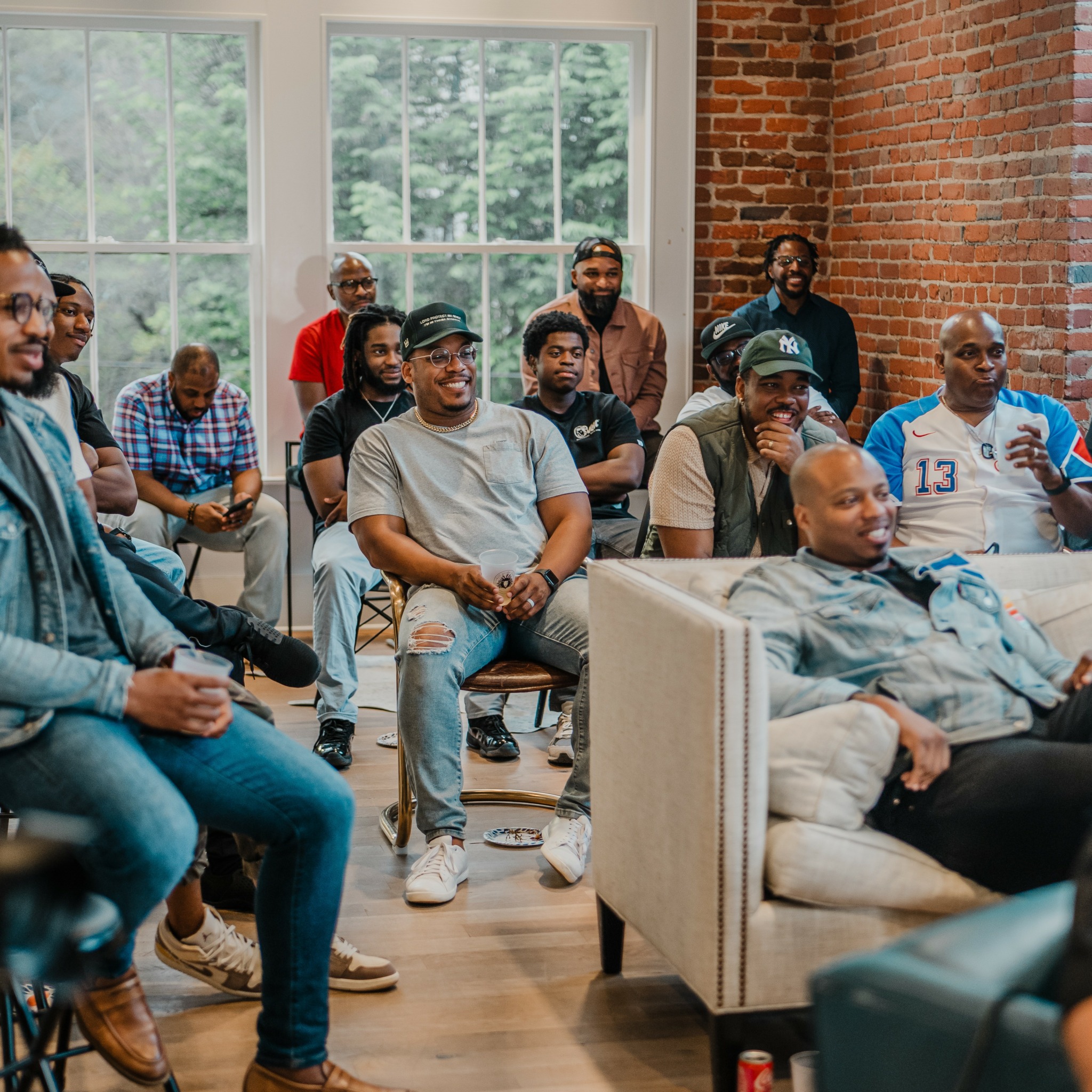
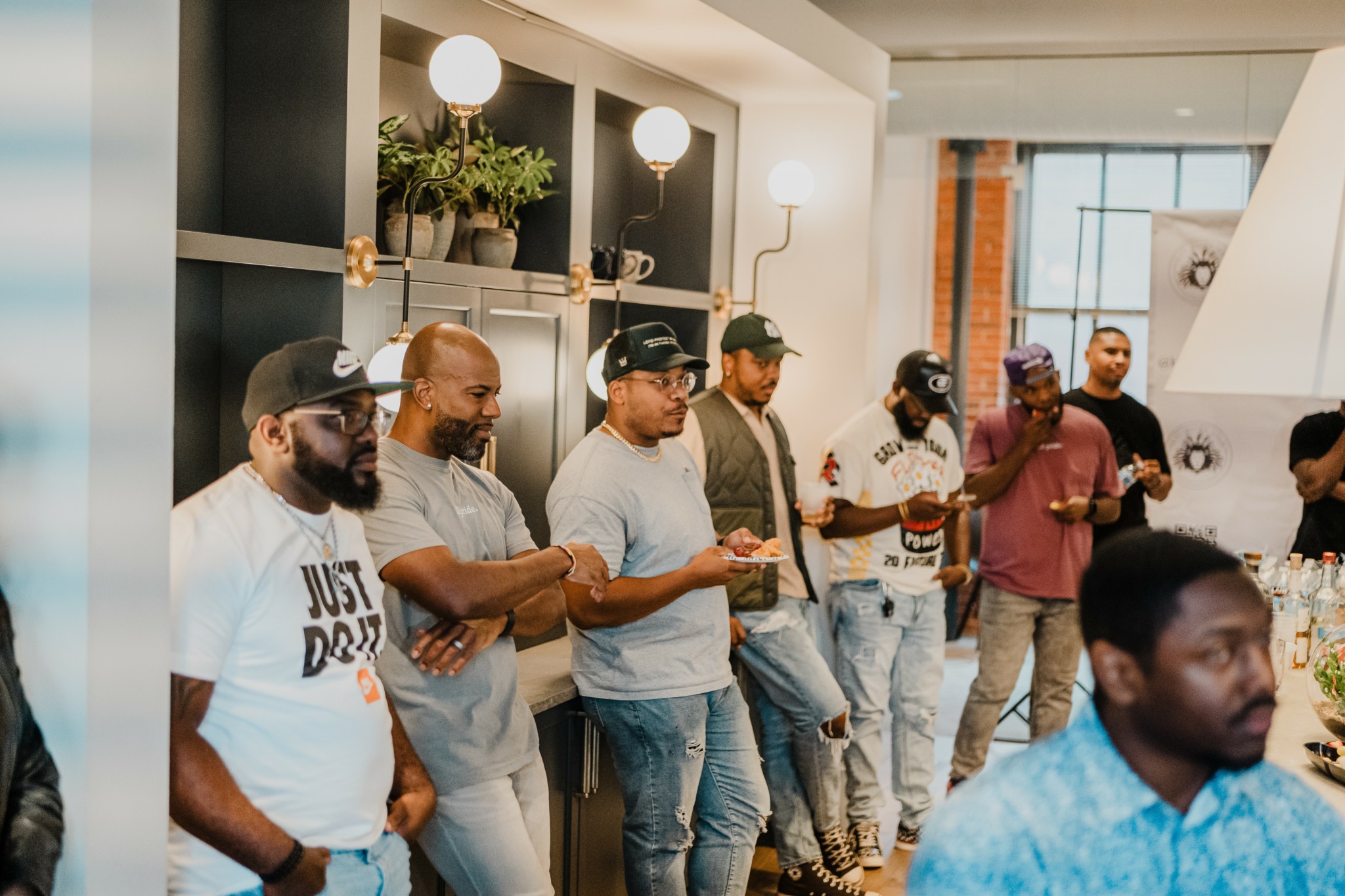
Terrence, love having you share your insights with us. Before we ask you more questions, maybe you can take a moment to introduce yourself to our readers who might have missed our earlier conversations?
I’m Terrence Smith, though most people just call me T. I’m a real estate professional, a pastor, communicator and the founder of kill pride club. It’s more than a brand. It’s a movement, a community, and a conversation space dedicated to helping men, especially Black men, tell the truth about what they carry. I’m also a husband to one and a father to two, which shapes so much of how I lead, listen, and live.
For years, I kept a lot to myself. I was the person people came to for encouragement, clarity, and strength, but I rarely felt safe enough to say, “I’m hurting too,” or had the emotional vocabulary to communicate that. Like many men, I was taught to lead, to provide, and to press on. What I wasn’t taught was how to grieve, how to release, or how to ask for help without shame. And honestly, I was afraid. I was afraid of looking weak. I was afraid of what might come out if I finally said it out loud.
Things began to shift after a few personal losses, and I decided to take the risk of sharing how I really felt with brothers, friends, and eventually, a therapist. What I found was powerful. The more I shared, the more other men opened up too. I realized that sometimes healing starts when someone goes first. That decision planted the seed that grew into kill pride club.
What started as backyard conversations has grown into something far greater. kill pride club is now a community of men who are showing up for themselves and for each other. We host live gatherings, podcast-style talks, spiritual reflections, and emotionally honest dialogue. We talk about the things we were taught to suppress: stress, grief, manhood, aging, legacy, fatherhood, identity, and the quiet weight of unspoken expectations.
Our “product” isn’t just a service. It’s a space. We offer experiences and content that center emotional accountability, cultural healing, and brotherhood that doesn’t rely on performance. kill pride club exists to help men live fuller, freer lives by dismantling the ego armor we were taught to wear, and inviting a more honest, grounded way of being.
What sets us apart is that this isn’t just a concept. It’s lived experience. I’m not leading from a mountaintop. I’m walking through it just like everyone else. I’ve had to unlearn pride. I’ve had to sit in the discomfort of growth. And I’ve committed myself to creating spaces where other men can do the same, without shame and without needing to be perfect first.
What I’m most proud of is that this has become a lifeline for many. It’s a space where tears and laughter often show up together with great food, great drinks, great people and a few mics. Where silence is met with support. Where men don’t have to perform, fix, or prove anything. They just get to be whole.
If you’re reading this and you’re a man who’s tired of having to always act like everything is okay, or someone who loves a man who carries more than he says, know that there is space for you here. kill pride club isn’t about tearing men down. It’s about tearing down what’s been tearing us up.
You’ll find us on Instagram (@killprideclub), YouTube (http://www.youtube.com/@killprideclub), Spotify and Apple Podcast; at quarterly meetups, and anywhere men are ready to say what they never thought they could. This isn’t therapy. It’s not a performance. It’s real life. And it just might save yours.
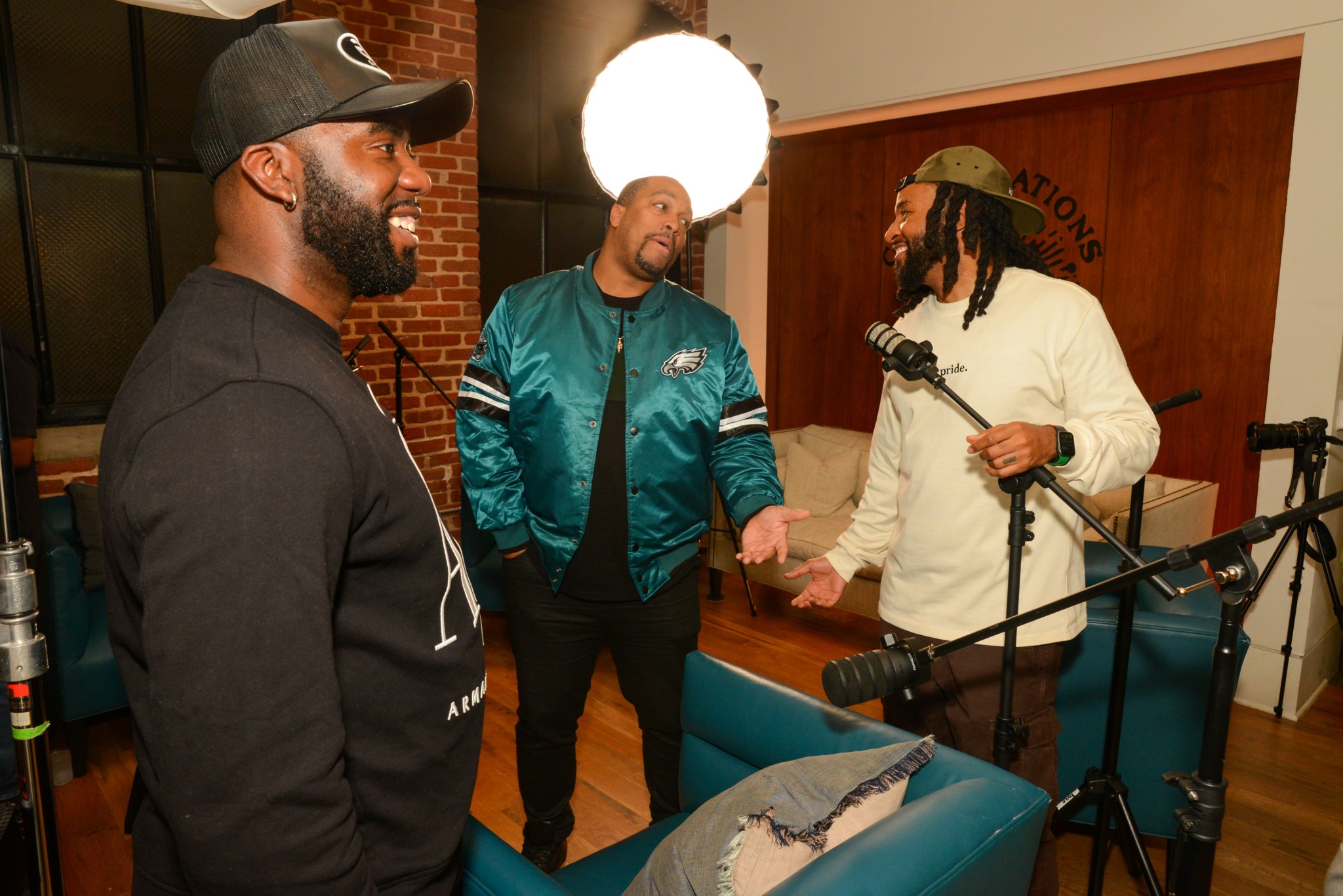
Other than training/knowledge, what do you think is most helpful for succeeding in your field?
Other than training and knowledge, I believe the most helpful thing for succeeding in my field, whether that’s real estate, leadership development, or community healing through kill pride club, is emotional presence. That means being fully available, fully human, and fully willing to connect beyond the surface.
People don’t just want information or instruction. They want to feel seen. They want to know you’re not just competent, but that you care. Whether I’m walking someone through a housing journey, facilitating a workshop, or sitting in a circle of men who are naming their grief out loud for the first time, it’s the emotional integrity I bring that builds trust.
In this kind of work, your ability to listen deeply, hold tension, and model vulnerability is more valuable than any certification. You have to be the kind of person who can both lead and sit with people in their discomfort without rushing to fix it. That’s where change happens.
So, to me, success in this field looks like showing up with humility, empathy, and consistency. If you can be the same person in every room, whether it’s a boardroom, a barber shop, or a backyard, you’ll not only succeed, you’ll create space for others to succeed too.
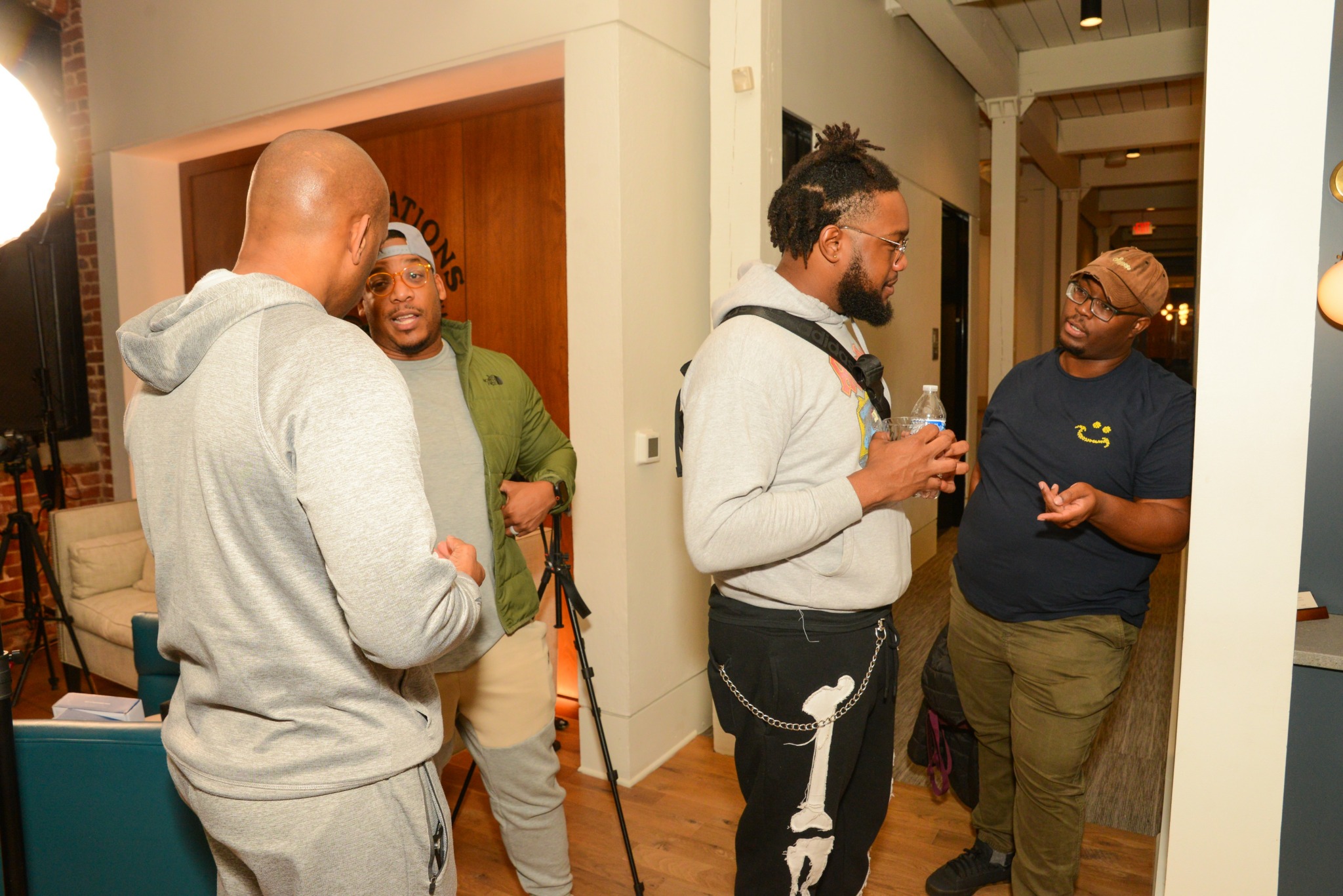
Learning and unlearning are both critical parts of growth – can you share a story of a time when you had to unlearn a lesson?
A lesson I had to unlearn is that being strong means being silent.
Growing up as a Black boy, as a man, as a leader, I internalized the message that strength meant holding it all together. Don’t flinch. Don’t fold. Don’t feel too much. Especially not in public. I got good at managing, performing, even thriving under pressure. But I also got good at hiding. I wore pride like armor, convincing myself that vulnerability would only slow me down or make me look weak.
The backstory is that I was the one people leaned on for advice, for prayer, for clarity, for direction. But when I lost a loved one, faced personal grief, and felt stretched thin in every direction, I realized I didn’t know how to be held in return. I remember sitting in my car, knowing I needed help but not knowing how to say it out loud.
One moment in particular stays with me. I was driving down I-20, heading back from graduate school. The sun was setting, and the pressure I’d been carrying felt unbearable. The responsibilities, the uncertainty, the weight of always needing to have it together, and knowing that there was no way that I could put all of this weight on my pregnant wife, it was too much. Somewhere between exits, I started yelling at God. Not out of disrespect, but from a place of raw exhaustion. “This is too heavy,” I said. “I can’t carry all of this.”
That was the breaking point and the turning point.
Eventually, I made the decision to share what I was going through with people close to me, and then with a therapist. That small act of honesty opened a door. Not just for me, but for every man I’ve walked with since.
That’s the root of kill pride club. I had to unlearn the false equation of silence with strength. Real strength is being honest. Real strength is asking for help. Real strength is knowing when to put the armor down and let someone see you as you are. I still wrestle with it, but I lead from that place now. And every time a brother says, “Me too,” I’m reminded it was worth unlearning.
Contact Info:
- Website: https://killpride.com
- Instagram: @killprideclub
- Linkedin: https://www.google.com/url?sa=t&source=web&rct=j&opi=89978449&url=https://www.linkedin.com/company/kill-pride-club&ved=2ahUKEwjQxvTWxOyNAxV6MlkFHSR8PS4QFnoECBwQAQ&usg=AOvVaw16UFw14sMeXa9yIuUDJxri
- Youtube: http://www.youtube.com/@killprideclub
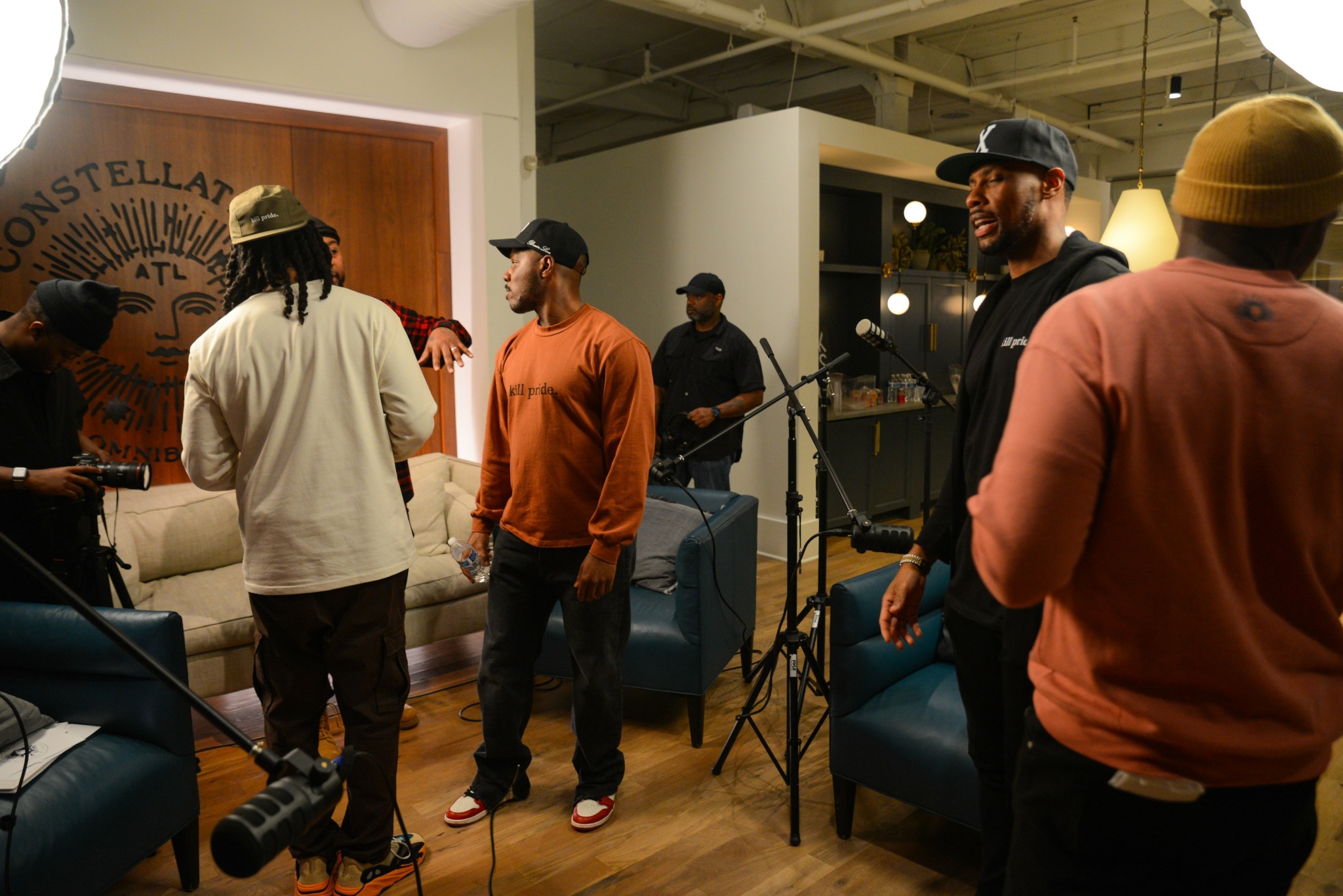
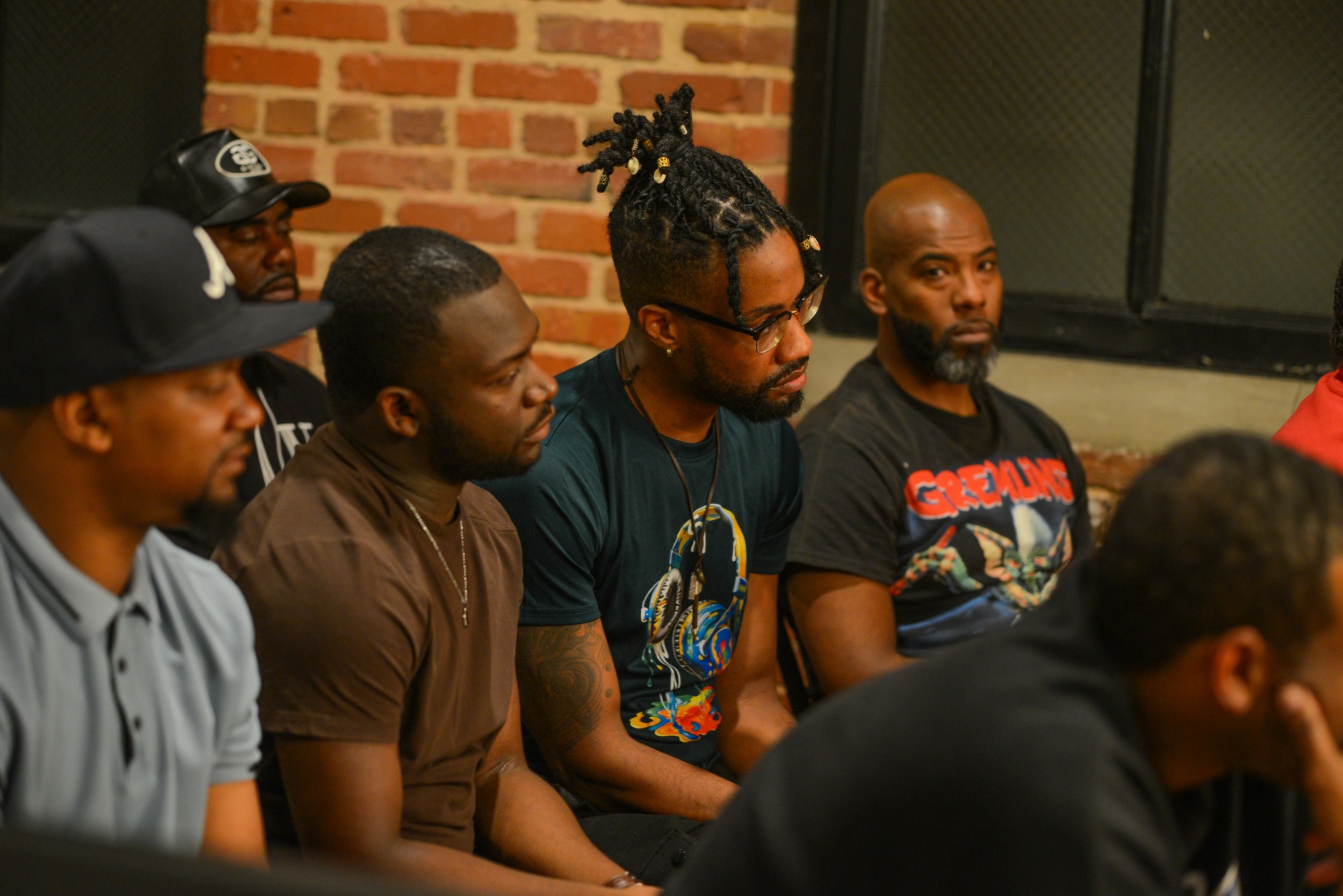
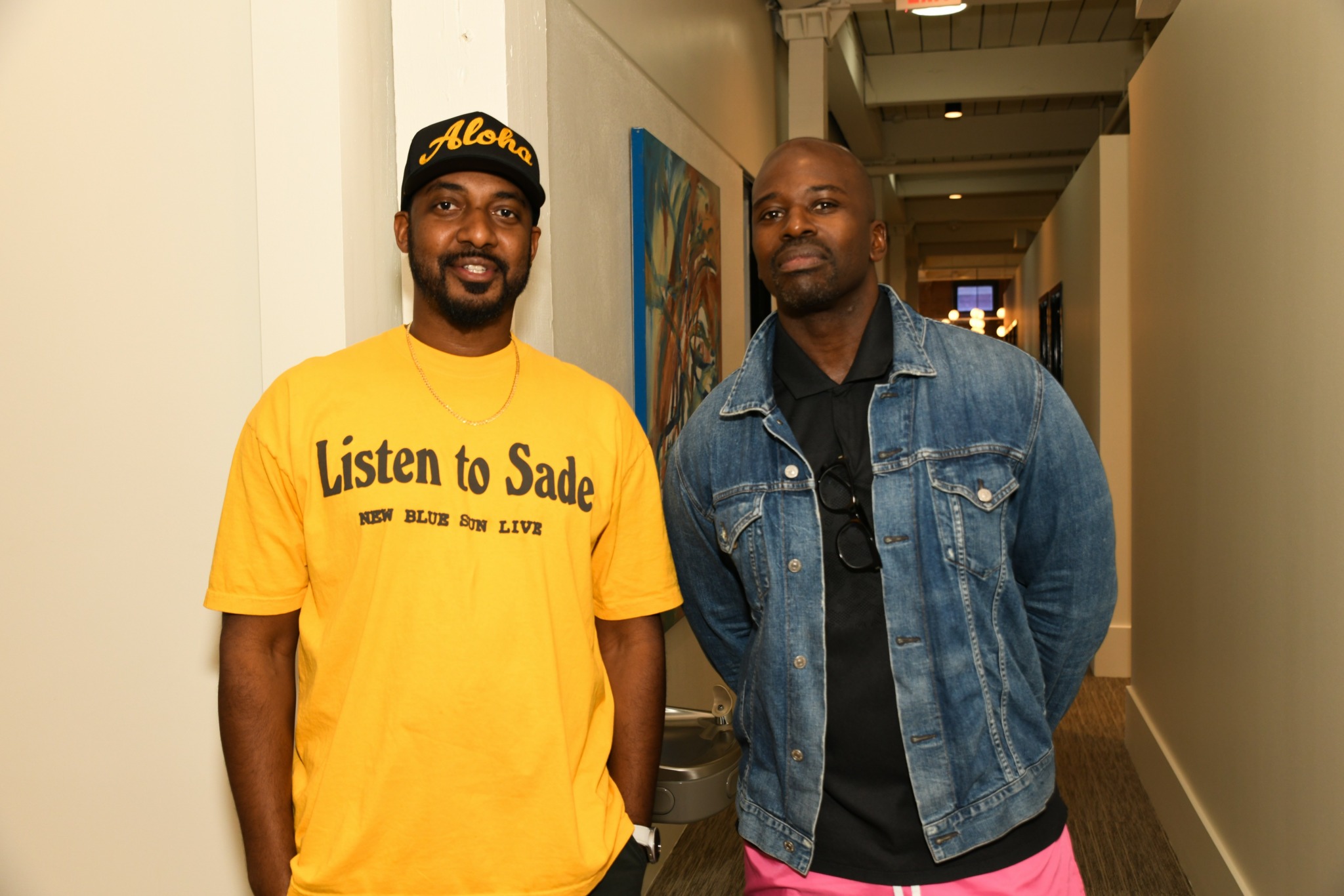
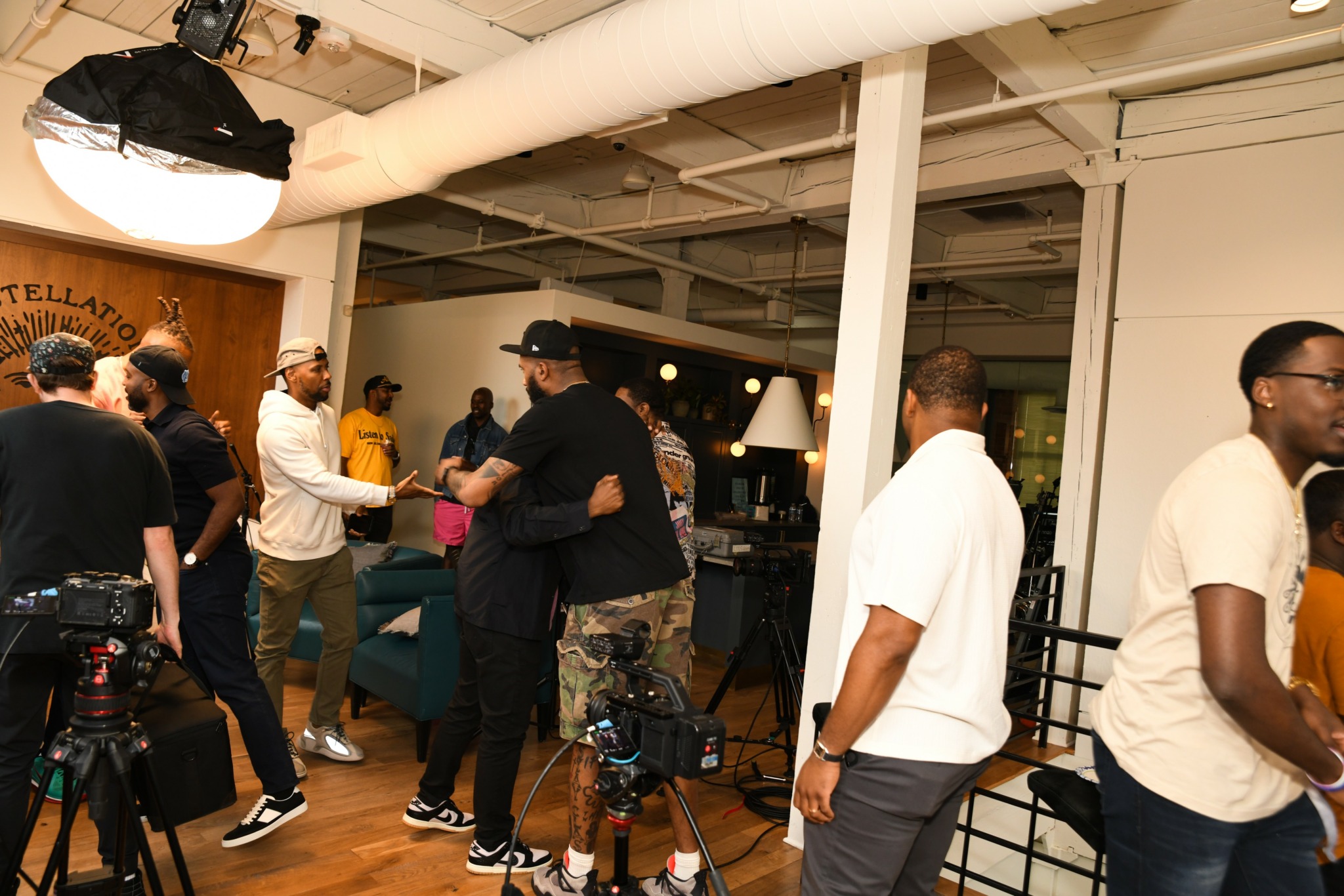
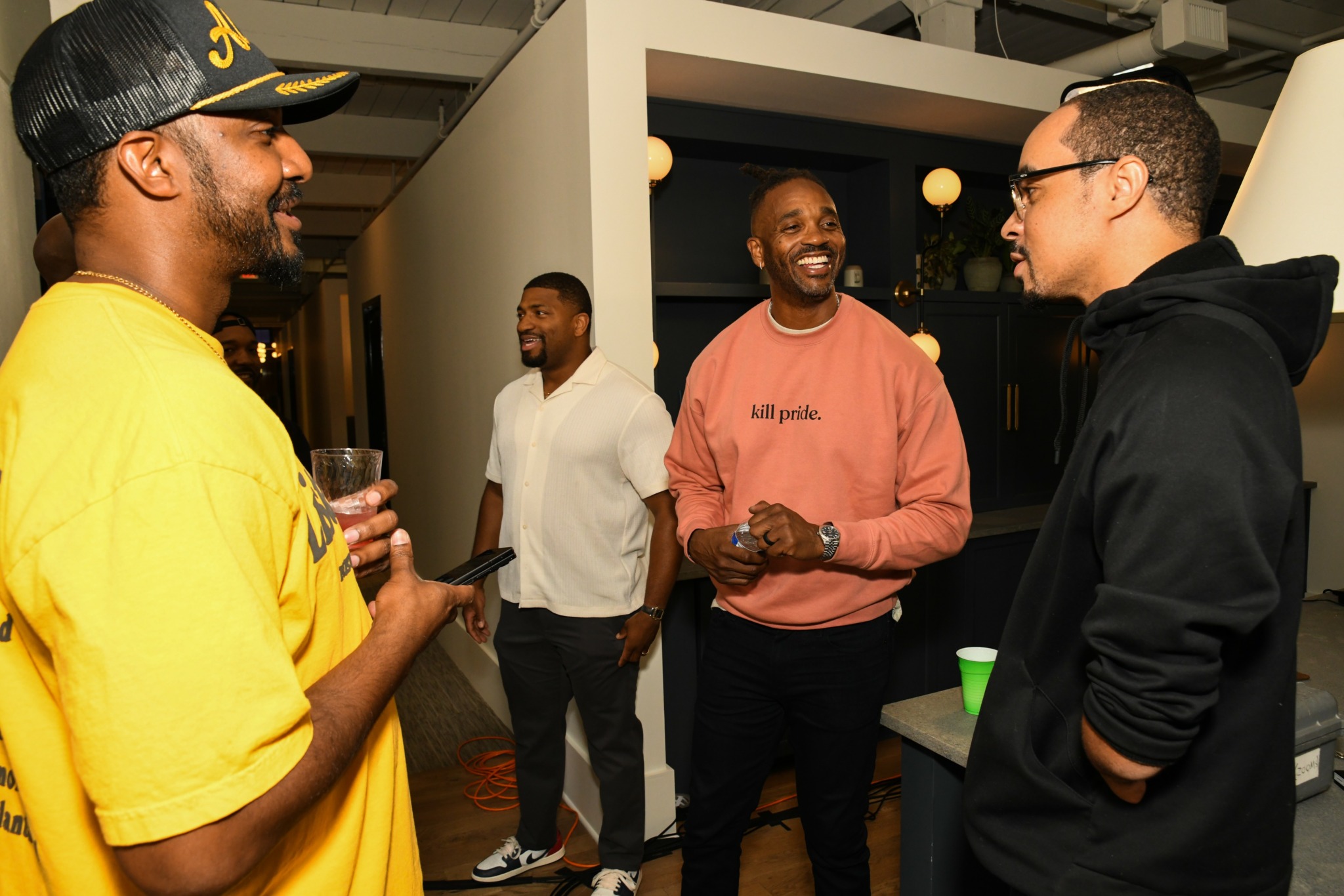
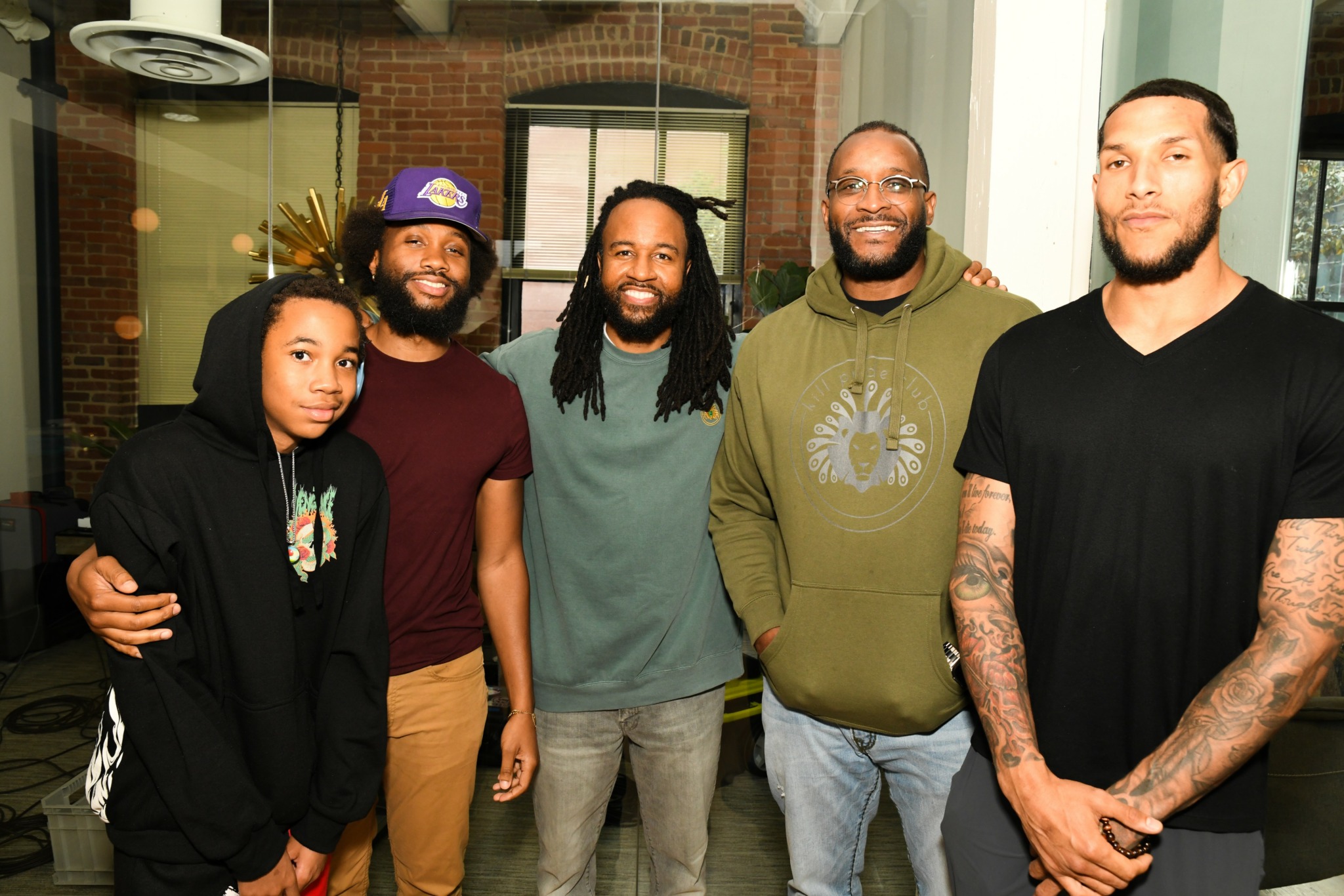
Image Credits
Quentin Dupree


